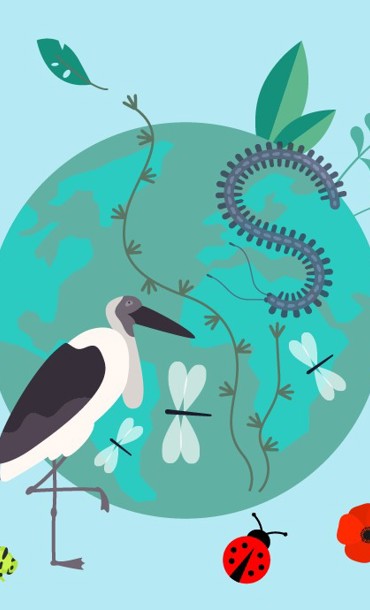Boost biodiversity

In your garden
- Let nature take control and be wild in sections of your garden. You’ll get a wider variety of plants that are naturally well-suited to the space and they will attract bees, butterflies and other pollinating insects, as well as providing food and shelter for other creatures.
- Keep your natural lawn - artificial grass reduces healthy habitats for insects and other wildlife, and contributes to microplastic pollution.
- Mow the lawn or verge only once every four weeks, this makes space for many important insect species and allows plants such as daisies and white clover to flower.
- Always remember to plant responsibly. Source plants from reputable suppliers to help prevent the introduction and spread of pests and diseases. Plant native species and don’t introduce invasive plants. Think carefully about where you plant larger hedges and trees and be considerate of the impacts of planting on neighbours. Always make sure you have the landowner’s permission to plant.
- Plant or sow native wildflowers, shrubs and trees where possible on areas that aren’t already species-rich.
- Start a vegetable patch or grow your own in pots or window boxes.
- Always use peat-free compost. We need to retain peat bogs, which act as carbon stores and offer unique wildlife environments.
- Create a wildlife pond - even small bodies of water will attract frogs, newts and dragonflies. Do ensure ponds are not accessible to children without supervision.
- Build an insect hotel using piles of twigs, rocks and rotting wood in the garden. Put up a bird box with feed to help birds thrive.
- Leave a gap in your garden fence so that wildlife such as hedgehogs can move from plot to plot, and consider creating a nature highway.
In your community
- When out and about, use the Seek app to identify your wildlife sightings and learn about biodiversity in your local area. You can also share your findings via iRecord to help improve local data records and conservation.
- Work with your local community to improve biodiversity of road verges. You’ll help support local wildlife and connect with like-minded people.
- Volunteer regularly with a nature conservation project in your local area.

